Lifestyle
The Ancestral Diet: 5 Simple Ways to Live More Like Your Ancestors
September 28, 2021
There’s a familiar story I hear time and time again from my patients. It goes a little something like this…
You’re unhappy with where you’re at in life, thinking, “Is this really it?”
You’re mentally, physically, and spiritually exhausted.
And quite honestly, your life feels like a hamster wheel—running from family to work to social obligations and back—leaving no time in the day to take care of YOU.
This isn’t how your ancestors lived, and it’s not how you need to live either.
In this article, I'll be sharing 5 simple tips to help you eat, move, and live a little more like your ancestors. Let's dive in...
Table Of Contents
What Is the Ancestral Diet?
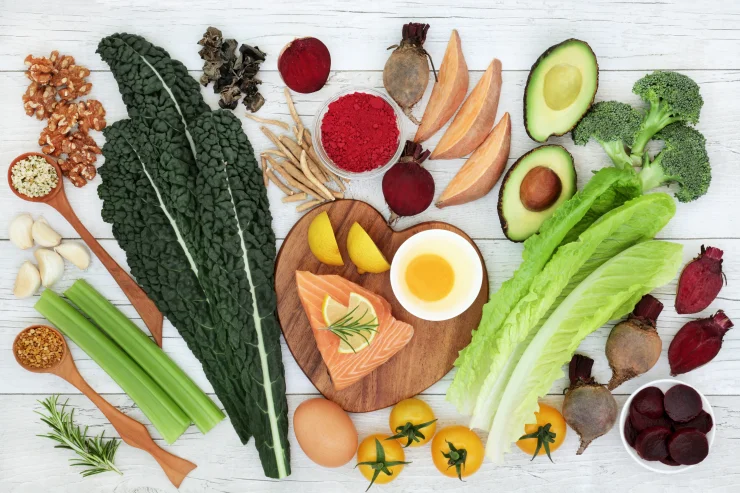
In 1931, a dentist by the name of Dr. Weston Price was eager to discover why he was seeing such an increase in dental health issues. So, he set off to travel the world to see what other cultures were doing differently.
He visited African tribes, Australian Aborigines, and North American Eskimos among many other groups of people (1).
After studying these cultures, he discovered these groups had NO health issues…
Their teeth were straight and free of disease.
Their bodies were lean and fit.
They were resistant to disease.
By now you’re probably asking, “But HOW?!”
Here’s how: They all ate a traditional diet unique to THEIR location and culture—a diet rich in whole, unprocessed superfoods and nutrients. In short, they ate ancestrally.
This is exactly why the Keto diet, Mediterranean diet, and Paleo diet aren’t going to work the same for each person—because we all have a distinct genetic makeup that causes us to process foods differently.
Bottom line: You’re going to feel better and look better—just by eating the right ancestral foods for you.
But how can you be sure of which foods to eat?
Tip #1: Eat For Your Body Type
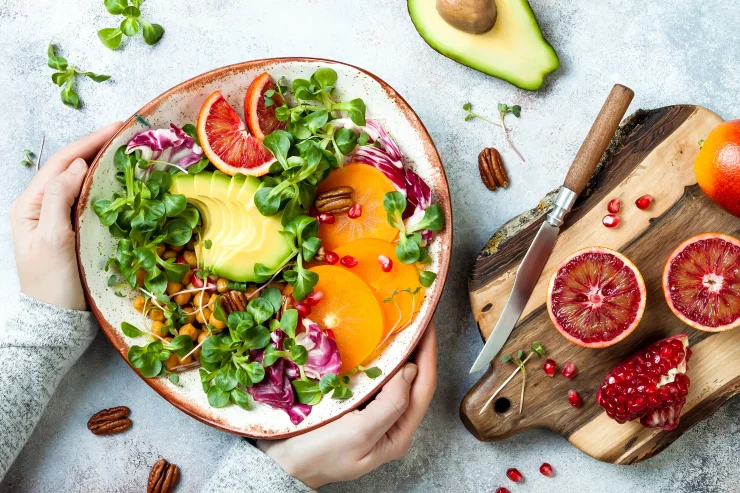
Did you know that 70% of the food products that line grocery store shelves are ultra-processed (2)?
This is something your ancestors never had to deal with.
The truth is, your biology has been hijacked by the food industry.
Big Food has done a hostile takeover of your taste buds, brain chemistry, hormones, and metabolism.
If you’re trying to lose weight by willpower alone, you’ll likely fail. But it’s not your fault. You have a $198.9 billion dollar industry engineering your food and creating advertisements that target your biggest weaknesses (3).
But there is a solution...
Before you read any further, go take the Native Body Type Quiz.
This quiz will tell you the best foods to fuel YOUR unique body type, the foods you need to limit and/or eliminate, how to eat to burn fat, and lastly, how to use your food list to create a custom meal plan that’s uniquely designed for you.
The Problem with the Modern Diet

Believe it or not, your ancestors weren’t eating white bread, baked goods, fried foods, factory-farmed meat, excess sugar, processed foods, or soda.
They hunted, gathered, and lived off the land.
When they were hungry, they didn’t grab a bag of chips. They foraged—eating fresh fruits, fresh vegetables, free-range organic meat, nuts, and seeds.
The problem with the modern diet is that it’s mostly acid-based (a non-alkaline diet)—which leads to an increased risk of disease, and even early death (4).
In comparison, your ancestors’ diet was full of high-fiber fruits and vegetables, with minimal dairy and grains (a less acidic, more alkaline diet) (5).
Chronic conditions of an acid-based diet include (4, 6):
- Arthritis
- Back pain
- Decreased growth hormone which causes poor cardiovascular health and a decrease in memory and cognition
- Decreased magnesium and vitamin D. These two go hand-in-hand because your body needs magnesium to activate vitamin D. Low levels of either lead to poor organ function.
- High blood pressure
- Loss of muscle
- Poor bone health
- Poorer response to chemotherapy and increased risk of cancer
- Stroke
Foods that are acidic and lead to these negative health outcomes include (6):
- Processed meats
- Hard cheese
- Caffeinated drinks, alcohol, and soda
- Sugar
- Most sweeteners
- Most legumes
- Grains: Corn and rice
- Seeds: Pumpkin and sunflower
- Nuts: Macadamia, cashews, peanuts, and walnuts
- Fruits: Blueberries, cranberries, and plums
Now, this doesn’t mean these foods should be sworn off forever. It simply means to be mindful of what you’re eating so that you can single out what’s causing inflammation, disease, and low energy.
Health Benefits of the Ancestral Diet
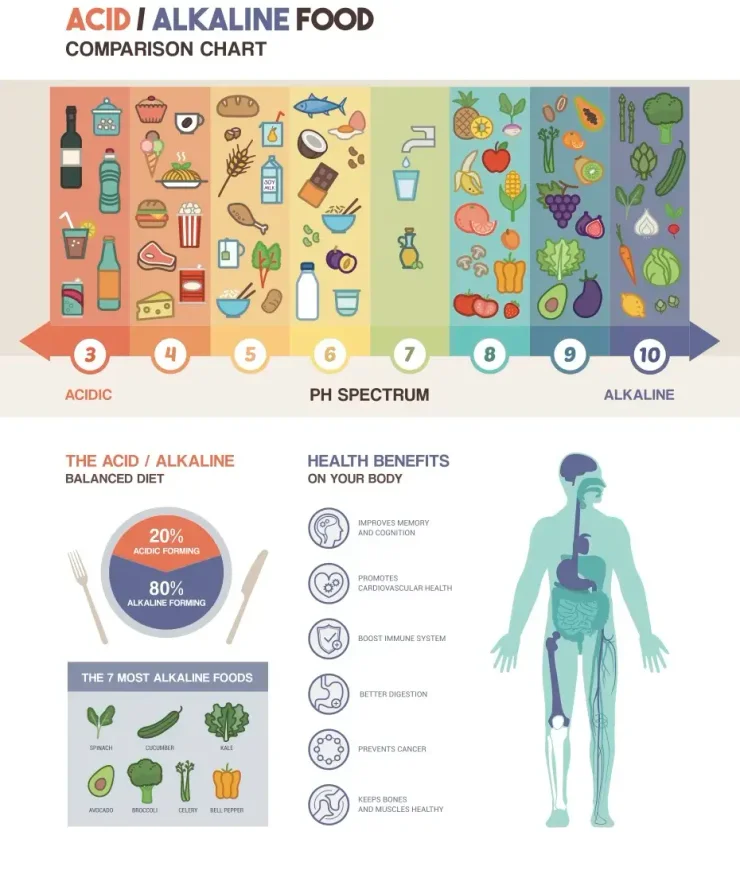
Your ancestors ate alkaline, and the secret to this non-acidic diet is fruits and vegetables.
Alkaline foods you should incorporate into your diet include (6):
- Eggs
- Yogurt and milk
- Legumes: Soy, pea, and lima beans
- Nuts: Almonds, chestnuts, and pine nuts
- Grains: Flax and quinoa
- Seeds: Sesame and flax
- Vegetables
- Most fruits
- Cold-pressed, unprocessed oils like olive oil, coconut oil, and avocado oil
- Natural sweeteners like raw honey
If you can, opt for organic. This will make you even more native since you won’t be getting all the added pesticides and GMOs that come along with non-organic produce.
5 Helpful Tips to Eat Like Your Ancestors
- Shop on the outer perimeter of the grocery store where fresh produce, meat, and dairy can be found. Your ancestors ate foods that could be hunted (animals), harvested (grains like quinoa), gathered (fruit, veggies, and nuts), or caught (fish).
- Avoid foods with ingredients you can’t pronounce or that have more than four ingredients. These “foods” are chock-full of preservatives and sketchy ingredients. Just because it’s listed as an ingredient doesn’t make it a food.
- Avoid foods with an expiration date or a ridiculously long shelf life. These foods are jam-packed with preservatives.
- Avoid quick, frozen foods. The sodium level alone is enough to skyrocket your blood pressure. And the preservatives make it even worse.
- Whenever possible, eat seasonal, non-GMO, organic, local produce.
Tip #2: Move For Your Body Type
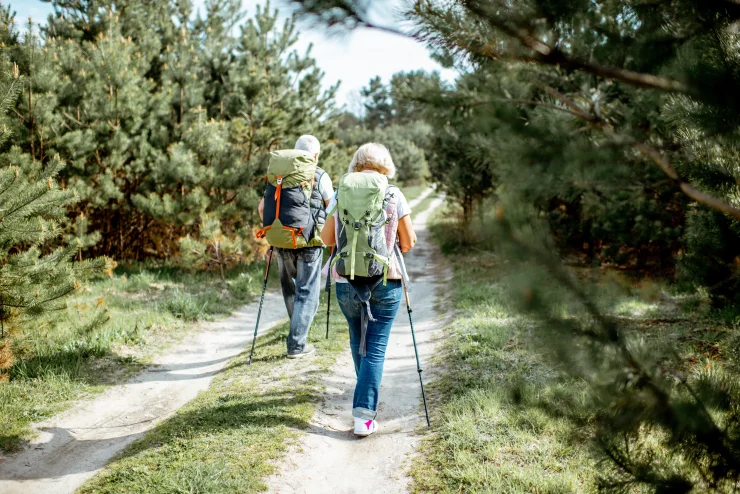
Your ancestors spent their time foraging, hunting, and gathering. This near-constant movement helped mold their bodies—keeping them lean, defined, and strong.
Nowadays, it’s rare to live this kind of lifestyle. More often than not, we’re driving to go somewhere, sitting an average of 10 hours a day, and putting off self-care because we just don’t have the time (7).
The truth is, exercise doesn’t have to be something you dread. It can be a peaceful, enjoyable experience.
To get you started, I’ve included 30 daily routines that can be individualized to your needs AND done in the comfort of your own home (no equipment required!).
These routines are designed to:
- Keep your core strong
- Define your shape
- Keep your body lean
- Reduce pain
- Strengthen joints
- Tone your body
Get ready to look, feel, and perform at your all-time best!
Tip #3: Add More Self-Nurturing Practices To Your Day

The truth is, you can eat all the fruits and veggies in the world and exercise every day and STILL be unhealthy.
True health and happiness take intentional, uninterrupted “me time”.
Rather than going through the motions day-in-and-day-out, carve out some time for yourself with the following self-nurturing practices:
- Practice deep breathing exercises
- Sleep 7-8 hours per night
- Exercise for at least 30 minutes per day
- Practice self-love (this can look like a bubble bath, cooking your favorite meal, or calling a dear friend)
- Connect with a community (it’s ideal if this community is also committed to experiencing life-changing transformations)
By living out these practices, you're resetting your mind and body back to their original setting.
Tip #4: Minimize These 9 Toxins
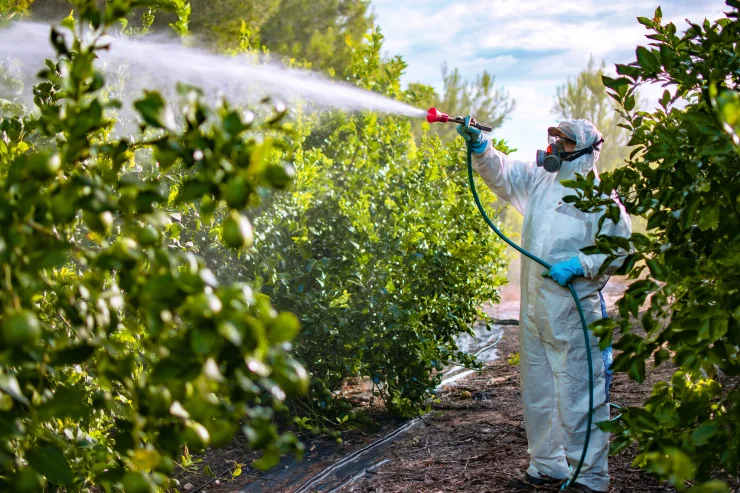
Today's method of food production (and the food itself) is one of the main causes of decreasing gut microbes and high levels of heavy metal toxicity.
Minimize the following 9 things to decrease your toxic load:
1. Artificial Sweeteners
Artificial sweeteners decrease microbiota diversity by hindering the growth of important gut bacteria (8).
When the beneficial bacteria in your gut are altered, your behavior can change. This alters your gut-brain axis and affects both brain function and mental outlook—encompassing many areas of mental health including depression and anxiety (9).
Altered gut bacteria can also lead to obesity and diabetes (10).
2. Heavy Metal Toxicity
Decreased microbiota diversity is highly correlated to heavy metal toxicity (11). One way to combat this is by eating probiotic-rich yogurt—which helps decrease heavy metal exposure.
You can also increase your probiotic intake with a high-quality probiotic supplement.
Sweating also releases heavy metals to lower your toxic burden (12). You can work up a sweat by being outdoors in warm weather, exercising, or giving the sauna a try.
3. Air Pollution
Moving into highly populated urban areas has hurt our air quality. The increase in air pollution increases inflammation, the risk of dementia, central nervous system damage, stroke, and depression (13).
Try to get out of the city to breathe clean, fresh outdoor air. You can also consider purchasing an air purifier for your home.
4. Pesticides
The pesticides that coat any non-organic produce are directly linked to cancer (14).
Eat organic whenever costs allow, minimizing your exposure to these deadly chemicals.
5. Pharmaceutical Medications
While you may not be able to minimize your use of some medications, consider natural alternatives whenever possible.
As always, consult a healthcare professional before beginning—or stopping—any medications.
6. Stress
The burden of chronic stress leads to many behaviors (that we want to avoid) like smoking, lack of sleep, eating too much, and drinking alcohol (15).
Incorporate activities into your life that help decrease stress. This could be meditation, reading, exercise, or spending time with those you love.
7. Household Cleaners
All non-natural household cleaners are full of chemicals.
Just grab a bottle of one of your cleaners and you’ll be shocked to see the list of ingredients.
Alternatives include making your own cleaning products or purchasing from a clean, eco-friendly company.
8. Excess Fatty Tissue
Losing weight does more than just help you look and feel your best, it also helps your body release toxins. That’s because fatty tissue stores toxins in your body (16).
So when you lose fat, you lose toxins, too.
9. Constipation
Constipation leads to the recirculation of toxins in your body. This increases your risk for chronic disease, cancer, and heavy metal poisoning (17).
Tip #5: Lower Chronic Inflammation
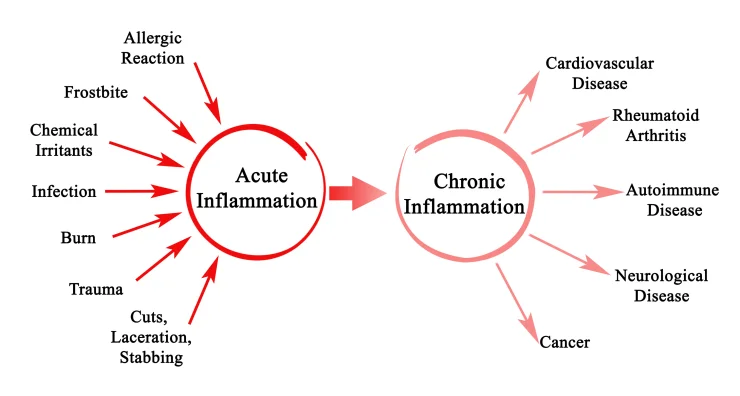
Inflammation is at an all-time high.
It’s often said that inflammation is the root cause of nearly all chronic conditions. Essentially, it’s the result of your body trying to remove a foreign contaminant and a sign that your body is trying to heal itself.
Conditions that are associated with chronic inflammation include (18):
- Arthritis
- Cancer
- Sinusitis
- Diabetes
- Asthma
- Tuberculosis
- Chronic peptic ulcer
- Crohn's disease
- Periodontitis
Luckily, there are 7 ways to live more like your ancestors that will drastically lower inflammation in your body...
- Take a turmeric supplement to decrease inflammation and even decrease joint pain (19).
- Exercise regularly to reduce inflammation. Even just 20 minutes a day is enough (20). Need some exercise inspiration? Head here for exercises and stretches that tone and define your body.
- Practice eating like your ancestors (see Tip #1).
- Omega-3 oils are proven to fight off inflammation.
- Keep a healthy gut by eating a diet rich in probiotics, or take adaily probiotic to keep a healthy balance of gut microbiota.
- Drink plenty of water to keep your body hydrated and well-equipped to detoxify.
- Spend time building relationships with others that leave you feeling happy, fulfilled, and cared for. This will help to decrease both inflammation and stress.
The Bottom Line: Shifting to an Ancestral Lifestyle for Good
As you adapt to ancestral living, you’ll begin to think about eating and moving differently…
Eating whole foods will become a blessing—rather than a punishment.
Moving your body will become something that you look forward to each day—knowing that it will relieve stress, get your blood flowing, and increase those “feel-good” hormones (AKA endorphins) (21).
Carving out “me time” will no longer be something you feel guilty about.
The benefits of ancestral living just keep getting better and better. You’ll begin to...
- Feel energized
- Feel happier
- Experience easy, smooth digestion
- Have better, higher quality sleep
- Feel better in your own skin
- Live life to the fullest
- Not be limited by pain
- Not cave to cravings
- Enjoy life with less disease
In short, living more like your great grandparents—and the generations before them—enriches your health, relationships, spiritual journey, and more.
Which tip are YOU going to put into practice today?
Dr. Chad Walding
Dr. Chad Walding
NativePath has strict sourcing guidelines and relies on peer-reviewed studies, academic research institutions, and medical associations. We avoid using tertiary references.
Medical Disclaimer
This content is for informational and educational purposes only. It is not intended to provide medical advice or to take the place of such advice or treatment from a personal physician. All readers/viewers of this content are advised to consult their doctors or qualified health professionals regarding specific health questions. Neither Dr. Chad Walding nor the publisher of this content takes responsibility for possible health consequences of any person or persons reading or following the information in this educational content. All viewers of this content, especially those taking prescription or over-the-counter medications, should consult their physicians before beginning any nutrition, supplement, or lifestyle program.



